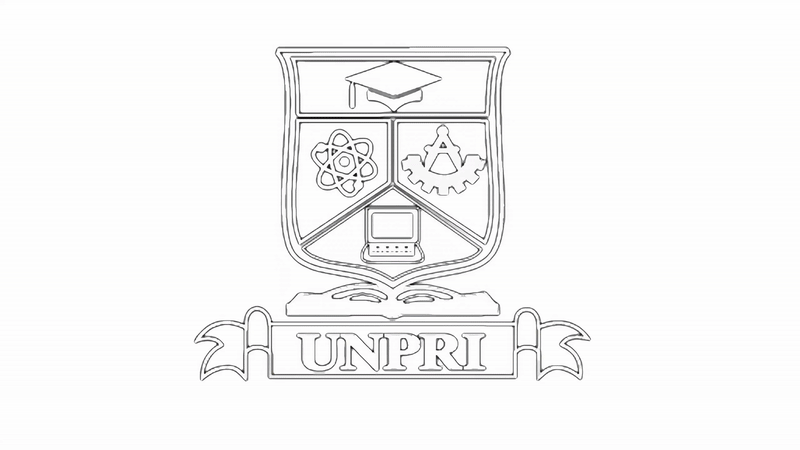UNPRI Civil Engineering Study Program Combines Theory and Practice
Faculty Talk Civil Engineering Study Program Edition
So far, the public is familiar with the Civil Engineering Study Program (Prodi) or Department at the Faculty of Engineering. But in accordance with the government's recommended curriculum, the Civil Engineering Study Program has been changed to the Civil Engineering Study Program.
Head of Civil Engineering Study Program UNPRI, Ade Al Muhyi S.T., M.T, explained that Civil Engineering is a science, as a continuation of Mathematics and Physics studied in high school. Civil Engineering applies engineering principles to meet the basic needs of civil society or the general public. So the focus is to meet needs.
Ade tells the history starting from the colonial era, such as building defense forts from enemy attacks, dams, bridges, highways or buildings to meet the needs of the general public. Then a science was created which if translated into English is Civil Engineering.
So according to Ade, both Civil Engineering and Civil Engineering are both Civil Engineering. The change in the term Civil Engineering to Civil Engineering is also a government regulation. So Civil Engineering is a science that discusses everything from planning, designing, management to calculating construction costs. Civil Engineering consists of several concentrations, from the planning stage to the building maintenance stage, and it consists of condiments, such as starting from building a simple house, then we will start from the foundation, columns, beams, walls to the roof. So at Unpri, Civil Engineering combines a learning system between theory and practice simultaneously.
"That's what differentiates the Civil Engineering Study Program and Civil Engineering at other universities. So UNPRI students no longer just spend time in class discussing theory. If it's just theory in class, students' minds can just wander, so we combine theory and practice in the field more than in class. This combination is to make it easier for students to imagine the things they learn from each lecturer. That's why we implement a Project-Based Curriculum, so that students are no longer confused about the theories they learn, UNPRI students implement them in the field with a lot of calculations, and it really helps students understand the course.
In semester I we are familiar with the term concept semester. There is still more theory here. But in semester II we call it the implementation semester. After understanding the concept in semester I, it is implemented in semester 2. Then in semester 3 students go into practice in the field, starting from surveyor practicums carrying out Theodolite activities, namely measuring the elevation of the building with the place where we stand, material and concrete practicums to test the strength of the concrete. Then according to the MBKM program, our students will do an internship in a field related to civil engineering. In semester 7 students will work on the design and construction. They will combine their lessons from the previous semester, then present them in the form of a paper and publish them, as a requirement for graduation later.
Indeed, Civil Engineering consists of several departments, starting from Geotechnical Concentration, Structural Concentration, Highway Concentration (Transport), Construction Engineering Management and Water Resources. At UNPRI, Civil Engineering targets students to focus on a particular field of study, namely Water Resources and Disaster Mitigation.
However, actually UNPRI's Civil Engineering Study Program does not box students in to be able to go there only, because if we look at the career prospects, in Indonesia the development of industrial areas is booming, so Civil Engineers are really needed, but we also encourage students to other career prospects.
The purpose of establishing the Civil Engineering Study Program at UNPRI is to contribute to our country, such as contributing to producing graduates who are able to meet the needs of construction development in Indonesia. Ade gave an example in Medan City alone, such as the construction of underpasses, the construction of Merdeka Square and other city parks and other construction projects. Not to mention in other provinces and districts/cities, not to mention the National Strategic Projects (PSN) and other sustainable projects. Moreover, UNPRI Campus has collaborated with many government-owned companies and other private companies.
According to Ade, the development in question will bring good and bad effects. There, Civil Engineers are present to minimize the negative effects, for example by implementing sustainable infrastructure.
News About "Fakultas Sains dan Teknologi:"
2024-08-20 14:46:25 by Elhaiza Gq Situmeang
Bincang-Bincang Fakultas Edisi Prodi Rekayasa Sipil
2024-08-20 14:46:25 by Elhaiza Gq Situmeang
Bincang-Bincang Fakultas Edisi Prodi Rekayasa Sipil
2024-08-20 14:46:25 by Elhaiza Gq Situmeang
Bincang-Bincang Fakultas Edisi Prodi Rekayasa Sipil
2024-08-20 14:46:25 by Elhaiza Gq Situmeang
Bincang-Bincang Fakultas Edisi Prodi Rekayasa Sipil
2024-08-20 14:46:25 by Elhaiza Gq Situmeang
Bincang-Bincang Fakultas Edisi Prodi Rekayasa Sipil
Other News
2024-08-20 14:46:25 by Elhaiza Gq Situmeang
Bincang-Bincang Fakultas Edisi Prodi Rekayasa Sipil
2024-08-20 14:46:25 by Elhaiza Gq Situmeang
Bincang-Bincang Fakultas Edisi Prodi Rekayasa Sipil
2024-08-20 14:46:25 by Elhaiza Gq Situmeang
Bincang-Bincang Fakultas Edisi Prodi Rekayasa Sipil
2024-08-20 14:46:25 by Elhaiza Gq Situmeang
Bincang-Bincang Fakultas Edisi Prodi Rekayasa Sipil











